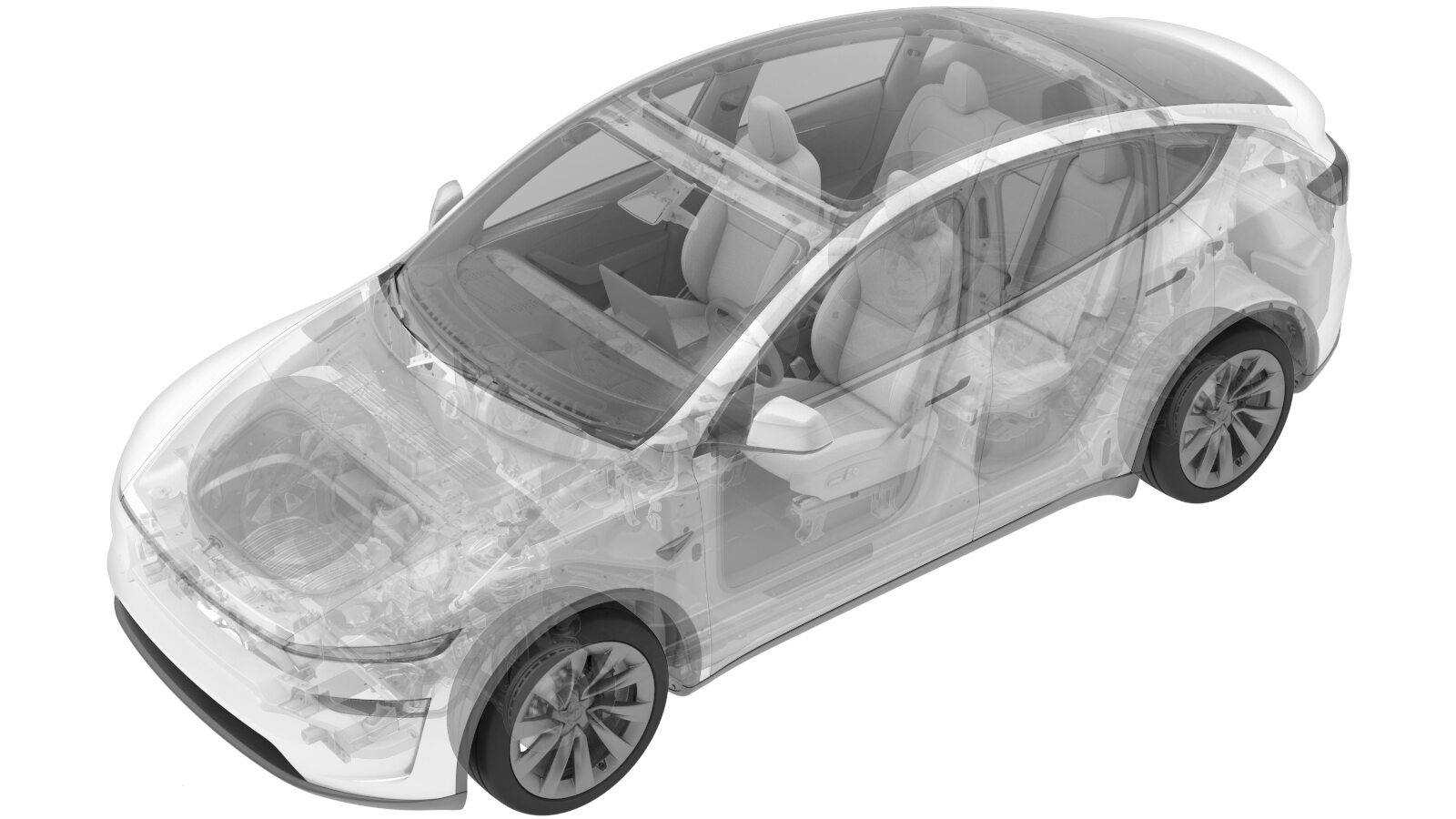Heat Exchanger - 3DU (Remove and Replace)
 Correction code
3901020902
FRT
1.05
NOTE: Unless
otherwise explicitly stated in the procedure, the above correction code and
FRT reflect all of the work required to perform this procedure, including
the linked procedures. Do
not stack correction codes unless explicitly told to do so.
NOTE: See Flat Rate
Times to learn more about FRTs and how
they are created. To provide feedback on FRT values, email ServiceManualFeedback@tesla.com.
NOTE: See Personal Protection
to make sure wearing proper PPE when performing the below procedure.
NOTE: See Ergonomic Precautions for safe and
healthy working practices.
Correction code
3901020902
FRT
1.05
NOTE: Unless
otherwise explicitly stated in the procedure, the above correction code and
FRT reflect all of the work required to perform this procedure, including
the linked procedures. Do
not stack correction codes unless explicitly told to do so.
NOTE: See Flat Rate
Times to learn more about FRTs and how
they are created. To provide feedback on FRT values, email ServiceManualFeedback@tesla.com.
NOTE: See Personal Protection
to make sure wearing proper PPE when performing the below procedure.
NOTE: See Ergonomic Precautions for safe and
healthy working practices.
Torque Specifications
| Description | Torque Value | Recommended Tools | Reuse/Replace | Notes |
|---|---|---|---|---|
| Bolts (x2) that attach the heat exchanger to the front drive unit |
 5 Nm (3.7 lbs-ft) + 30 degrees |
|
Reuse |
Remove
- Remove the HEPA filter assembly. See HEPA And Carbon Filters (Remove and Replace).
- Disconnect the LV battery. See LV Power (Disconnect and Connect) (Modify).
- Remove the front aero shield panel. See Aero Shield - Front (Remove and Replace).
- Position a coolant drain container underneath the front drive unit.
-
Release the spring clip, and then
disconnect the front drive unit inverter hose from the front drive unit heat exchanger,
and then plug the ends of both fittings as soon as possible to avoid coolant loss
(1135762-00-A).
-
Release the clip, and then disconnect
the powertrain return tube from the front drive unit heat exchanger. Plug both hose ends
with plugs (x2).
-
Remove the bolts (x2) that attach the
heat exchanger to the front drive unit, and then remove the heat exchanger from the
front drive unit.
CAUTIONGently wiggle the heat exchanger to free it from the front drive unit.TIpUse of the following tool(s) is recommended:
- Socket 3/8 in Dr EP10
- Torque wrench with angle measurement
Install
-
Position the front drive unit heat
exchanger to the vehicle, and then install the bolts (x2) that attach the heat exchanger
to the front drive unit.
 5 Nm (3.7 lbs-ft) + 30 degreesNote
5 Nm (3.7 lbs-ft) + 30 degreesNoteLightly coat the O-rings with clean KAF 1 gearbox fluid.
Do not pinch or deform the O-rings during installation.
Do not allow the coolant to enter oil passages of the drive unit to avoid cross-contamination.
TIpUse of the following tool(s) is recommended:- Socket 3/8 in Dr EP10
- Torque wrench with angle measurement
-
Remove the plugs on the ends of
fittings, and then install the spring clip to connect the front drive unit powertrain
return hose to the front drive unit heat exchanger.
NotePerform a push-pull-push test to make sure that the hose is fully secured.NoteInstalling the side of hose first will eliminate the coolant loss when connecting to the supermanifold.
-
Remove the plugs on the ends of fittings, and then install the spring clip to connect
the front drive unit inverter hose to the front drive unit heat exchanger.
- Remove the coolant drain container from underneath the vehicle.
- Drain and refill the front drive unit gearbox fluid. See Gearbox Fluid - Front Drive Unit (Drain and Refill).
- Install the front aero shield panel. See Aero Shield - Front (Remove and Replace).
- Connect the LV battery power. See LV Power (Disconnect and Connect) (Modify).
- Locally connect a laptop with Toolbox 3 to the vehicle. See Toolbox (Connect and Disconnect).
- Click the tab, and then enter "Oil Pump Low Pressure Test - Front Drive Unit" in the search field.
- Click TEST-SELF_DIF_X_OIL-PUMP-PRESSUREvia Toolbox: (link), and then click and allow the routine to complete.
-
On the touchscreen, tap the Service
Mode "wrench" (at the bottom of the touchscreen UI), and then tap and allow the routine to complete.
Note
- The routine will last for a while after the stop message displays. The coolant pumps are audible.
- The test lasts for approximately 10 mins. Do not start another routine during this time.
- Make sure that the vehicle is not in Drive. Putting the vehicle into Drive will stop this routine.
- The speed in the test varies from 3500-6500 RPM (idle speed = ~1500 RPM) and the actuated valve varies between SERIES and PARALLEL.
- If the speed hovers at 7000 RPM, it indicates the pumps are air locked. Perform the vacuum fill again. Continue to add the coolant and purge until the coolant level reaches between the NOM and MAX Lines on the bottle.
- Disconnect the laptop.
- Exit Service Mode. See Service Mode.
-
Inspect the coolant level, top off as
necessary, and then install the coolant bottle cap.
NoteEnsure that the coolant level is at the "Max" line.
- Install the HEPA filter assembly. See HEPA And Carbon Filters (Remove and Replace).
- Raise the LH front window and close the LH front door.
- Remove the lift arms from below the vehicle.